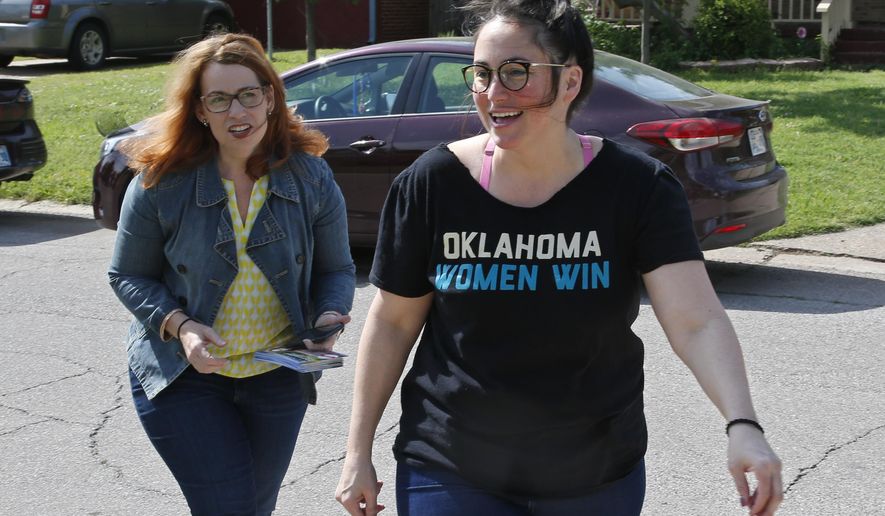
EDMOND, Oklahoma (AP) - Vicki Toombs[1] was watching the returns on election night 2016 when her phone buzzed - a text from her 22-year-old son Beau in Chicago. Beau, who is gay, was afraid that the new administration would end the Affordable Care Act and with it the insurance he and his friends used to pay for the drugs that protected them from HIV and AIDS.
“I just felt the bottom drop out of my world,” said Toombs[2], 61. She felt she’d failed her son, as if Donald Trump[3]’s election was somehow her fault. She had to do something.
So, in one of the reddest cities in one of the reddest states in the union, Toombs[4] sought out the Resistance.
It wasn’t as easy as it might be in places like New York, Los Angeles and Washington, D.C., where multitudes of college-educated, predominantly white women have joined a rolling boil of activism since Trump[5]’s election. The Democratic party and liberals are plentiful on the coasts, but light on the ground in swathes of the country that hold the majority of electoral votes and congressional seats.
But even in Edmond, Oklahoma, Toombs[6] has found her sisters-in-arms. And it’s the reach of anti-Trump[7] forces into red states like Oklahoma that gives Democrats hopes of a national resurgence, though no one suggests that the heartland will change its political allegiance on a dime.
Regardless, the simple act of local liberals emerging from their shells has the potential to subtly change the dynamics in places like Edmond.
“It’s been a revelation,” Toombs[8] said of joining a group of more than 300 Democratic women in Edmond, a place she believed housed only a couple of other members of her political tribe. “We’re excited and also apprehensive thinking of what the fall’s going to be like. I hold my breath, hoping we created enough energy.”
These days, Toombs[9] texts her son excitedly to tell him about how she and her fellow activists have made calls and knocked doors for Democratic candidates running for special elections and helped win four of five legislative seats. How they have supported thousands of teachers who marched on the state capitol and won additional education funding from the GOP[10]-controlled state legislature and Republican governor. How they helped recruit candidates for every possible office in November, from their local city council to state legislative seats where Republicans usually garner double the votes of Democrats.
In states like Oklahoma, activists often say they came “out of the closet” when they started wearing their political affiliations on their sleeves after years of hiding them to avoid conflict. Still, they blanch at the term “The Resistance” and try to avoid mentioning Trump[11], knowing the key to swaying their neighbors is finding common...

